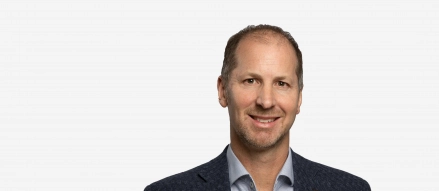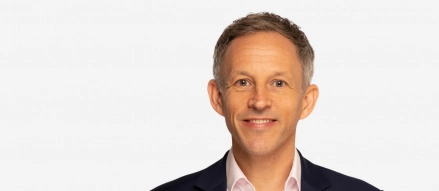Irene Dorner - Chair at Taylor Wimpey plc and Chair at Control Risks
Irene is a former non-executive director, Rolls Royce Plc and Virgin Money Plc. Previous roles include CEO of, President HSBC, USA and Group Managing Director of HSB Holdings. In 2021, Irene was named the year's 'Most Powerful Woman in Banking' by American Banker and she was recognised with American Banker's Lifetime Achievement Award.
Carolyn Clarke - Founder and CEO Brave, INED at Starling Bank
Carolyn is a leading expert in the fields of risk, assurance, control, compliance and conduct. Founder and CEO of board consultancy Brave, she is also a member of the Board of Starling Bank where she chairs the Ethics and Responsible Business Committee. She also chairs the Audit Committee of Agilyx, a pioneer in the plastics recycling sector and is Chair of the Board of Care International UK as well as a member of the Global Council of Care International. Until December 2019 Carolyn was the Head of Audit, Risk and Control at Centrica. Prior to joining Centrica, she spent almost twenty years with PwC, and seven as a Partner.
Liam Healy - Senior Vice President and MD - International at Diligent Corporation
Liam is the senior vice president (SVP) and managing director, International at Diligent Corporation, the leader in modern governance providing SaaS solutions across governance, risk, compliance, audit and ESG with $600 million in revenue. In his role, Liam leads all aspects of Diligent’s business in the APAC and EMEA regions including new client acquisition, customer success, marketing, professional services, and finance. He previously served as managing director of EMEA; SVP of Diligent Entities where he doubled the revenue of the business unit and head of sales at BoardEffect, which was acquired by Diligent. Prior to his career in business, Liam spent eight years playing and coaching professional baseball in America.
Panel session 2: The evolution of ESG risk & resilience
Guest speakers
Dr Sally Uren OBE - CEO at Forum For the Future
Sally has overall responsibility for delivering the Forum’s mission to create a sustainable future. Sally also acts as Chair of Kingfisher Plc’s advisory Council, is a member of Kimberley Clarke’s Sustainability Advisory Board and an independent advisor on Advisory Boards for several other global businesses. She is a judge for the Observer Ethical Awards, the Guardian Sustainable Business Awards and the Queens Award for Sustainable Development.
Ioannis Ioannou - Professor and Advisor on sustainability leadership and corporate responsibility
Through his academic work, advisory roles, teaching, and engagement with executives, Ioannou focuses on understanding whether, how and the extent to which companies and capital markets can lead on the path towards a sustainable future. More specifically, Ioannou is regarded as a leading authority on how companies strategically integrate environmental, social and governance (ESG) factors into their processes and structures and how the investment community perceives, evaluates, and reacts to such corporate attempts to integrate ESG.
Ioannis graduated magna cum laude from Yale University, majoring in Economics and Mathematics and holds a Ph.D. in Business Economics from Harvard University and the Harvard Business School.
Among his numerous advisory roles, Ioannis is the Co-Chair of the Sustainability Advisory Panel of Merck KGaA, a member of the ESG Advisory Board of the DWS Group, a member of the World Economic Forum Experts Network specialising in Sustainable Development, and a member of the Advisory Board of AXS Investments Institute for Sustainable Investing.
Susan Hooper - Chair at Tangle Teezer & Inter.Earth, NED at Uber & Moonpig
Susan is Chair of Tangle Teezer and Inter.Earth and sits on the Boards of Moonpig plc (Chair of the Remuneration Committee), EUROWAG plc (ESG and workforce Lead), and Uber UK. She is Acting Chair of Carbon Gap, is involved in several start-ups in carbon capture and sustainability and is also an Ambassador for the World Travel & Tourism Council.
Prior to this, Susan was Managing Director of British Gas Residential Services. She joined British Gas from the Acromas Group where she was Chief Executive of the Travel division, responsible for Saga Holidays, Hotels, Cruises, the AA Travel division and Titan Travel. Previously, she held senior roles at Royal Caribbean International, Avis Europe, PepsiCo International, McKinsey & Co, and Saatchi & Saatchi, living in over seven countries worldwide.
She was Chair of Caresourcer.com in Edinburgh and has held several non-executive directorships including Department for Exiting the European Union (DExEU), Wizz Air plc, Courtaulds plc, Royal & Sun Alliance plc, Transcom, First Choice Ltd., S.C Johnson, Whitbread plc, Affinity Water and The Rank Group plc. Susan was also a member of the Advisory Board of the LUISS Business School in Rome.
Chris Fuggle - Partner and Global Head of Sustainability at Mazars
Chris is the global leader of Mazars’ sustainability services and also leads Mazars UK’s sustainability practice; providing sustainability advisory and assurance services to a range of corporate clients across multiple sectors.
Chris is a board member of The Academy of Business in Society (ABIS) and member of the Chartered Institute of Management Accountant’s Corporate Reporting Development and Research & Development panels.
Chris is a regular commentator on ESG issues – both in the press and as an expert speaker at industry events.
This website uses cookies.
Some of these cookies are necessary, while others help us analyse our traffic, serve advertising and deliver customised experiences for you.
For more information on the cookies we use, please refer to our Privacy Policy.
This website cannot function properly without these cookies.
Analytical cookies help us enhance our website by collecting information on its usage.
We use marketing cookies to increase the relevancy of our advertising campaigns.





